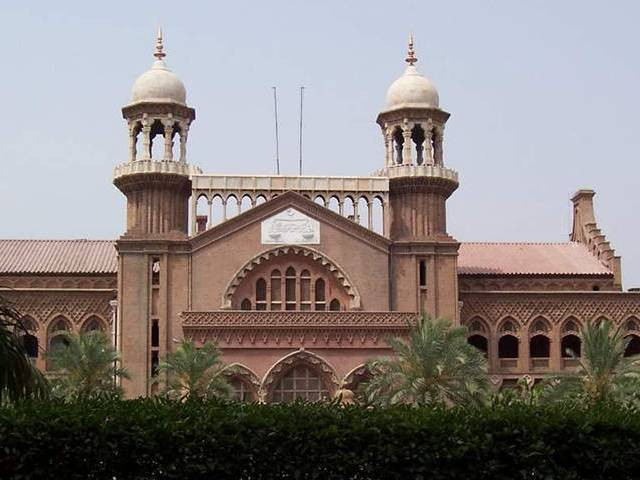LHC strikes down ‘sedition' law
Section 124-A of PPC that stops criticism of govt, other state institutions declared unconstitutional

Lahore High Court’s Justice Shahid Karim struck down Section 124-A of the Pakistan Penal Code (PPC), 1860 -– the “sedition” law -- declaring it as ultra vires of the Constitution.
The judge announced the decision which he had reserved after hearing detailed arguments on different petitions.
The petitioners had requested the court to strike down the law, arguing that it was not only contrary to the Constitution, but also against its “real essence”.
The lawyers representing the federation fiercely opposed the arguments of the petitioners lawyers, contending that this section was about “whoever by words, either spoken or written, or by signs, or by visible representation, or otherwise, brings or attempts to bring into hatred or contempt, or excites or attempts to excite disaffection towards, the federal or provincial government established by law shall be punished”.
They added that Section 124-A of the PPC was used in accordance with the law to restrain any person from resorting to these offences.
However, the petitioners' lawyers argued that the use of this section was tantamount to depriving the people of their basic right of freedom of expression.
“The instant petition calls in question the constitutionality, validity, reasonability, relevance and legitimacy of Section 124-A of the Pakistan Penal Code, 1860 which criminalises 'Sedition’,” read one of the pleas.
“It is most respectfully submitted that Section 124-A [of the] Pakistan Penal Code, 1860 is an unconstitutional [law] and ultra vires [of the] the Constitution as [it] brazenly and patently contravenes Article 8, 9, 14, 16, 17, 19 & 19-A of the Constitution,” it continued.
The petition added that since 1947, Section 124-A of the PPC, otherwise known as the sedition law, had been recklessly used in Pakistan as a tool of exploitation to curb the right to free speech and expression guaranteed under Article 19 of the Constitution.
“Section 124-A of the Pakistan Penal Code, 1860 is an illegitimate limitation and restriction on the legitimate, legal and lawful exercise of constitutionally guaranteed right of free speech and expression (in particular) and various other constitutional freedoms (in general),” the plea read.
Over the past few years various politicians, journalists and activists have been booked under Section 124-A of the PPC.
With each passing day, the intensity of registration of FIRs under Section 124-A is increasing.
The citizens of Pakistan have suffered a lot as almost every criticism of the government or any state institution has been treated as an offence under Section 124-A by the law enforcement agencies.
The plea contended that in a nutshell, Section 124-A was serving as a notorious tool for the suppression of dissent, free speech and criticism in a “free and independent” Pakistan.
Petitioner Haroon Farooq mentioned some lawmakers presently facing cases under the sedition law including MNAs Mohsin Dawar and Ali Wazir from the tribal districts, PTI leader Shahbaz Gill as well as various prominent journalists and civil rights activists.
The petitioners contended that most of these cases were politically motivated and based on vague, ambiguous, and uncertain allegations as well as subjective understanding and interpretation of the sedition law by the law enforcement agencies.
They requested the court that Section 124-A should be declared as ultra-vires in terms of Article 8 of the Constitution.
They claimed that it was inconsistent with and in derogation of fundamental rights provided under Article 9, 14, 15, 16, 17 and 19, 19A of the Constitution.
“In the interim and during pendency of the instant petition, the respondents may kindly be restrained from registering any FIRs, or undertaking any coercive measure in sedition cases under Section 124-A [of the] PPC,” the plea concluded.



















COMMENTS
Comments are moderated and generally will be posted if they are on-topic and not abusive.
For more information, please see our Comments FAQ